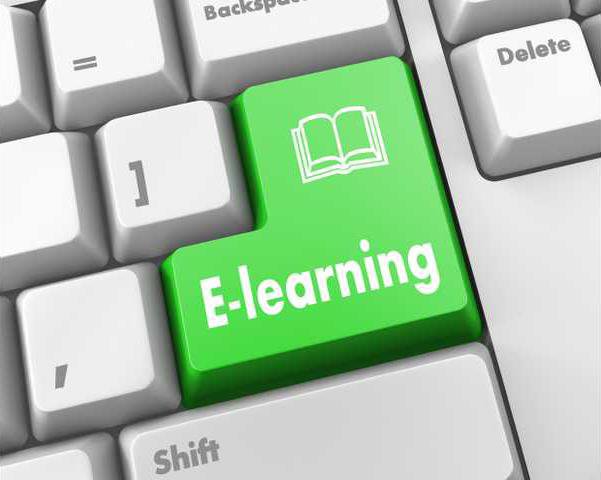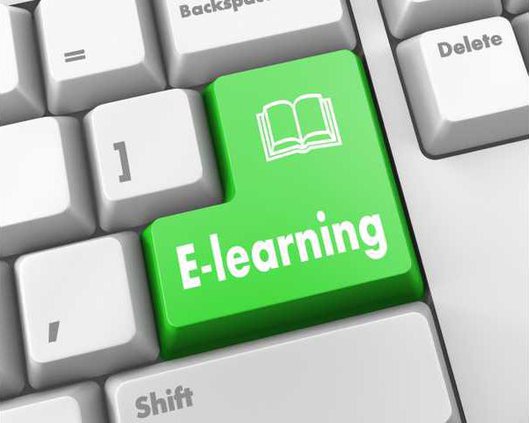For Charlotte Masson, learning is a way of life, but once she had finished her master’s degree, going back to school for a third time wasn’t an option.
“If I could be a professional student, I would be,” Masson, a 34-year-old guidance counselor at Westwood High School in Palestine, Texas, said. “But I’m at a place where I’ve spent more money on my education than I can handle. I guess it’s time to surrender to adulthood. I’ll probably go back later, though.”
Masson calls school an addiction, saying that she spends most of her time reading or thinking about philosophy, scientific research and literature. Her current drug of choice: free online courses.
More commonly known as MOOCs or massive open online courses, free online courses took root in 2008 amid the Great Recession as a means to provide education to those who couldn’t afford it. The appeal of MOOCs is that many of them are provided by top universities like Stanford and MIT, and taught by some of the best professors in the English-speaking world.
“Initially we saw a huge demand for classes geared to those who needed job security or those who needed something to set them apart in the job market after being laid off,” said Simon Nelson, a member of Stanford’s online education board. “But the main problem was that no one could afford the degrees and training they desperately needed.”
When MIT implemented over 100 free online courses, it considered the traditional purpose of education.
“Sometimes I wonder if we’ve lost our vision of education,” said Tom Bronson, MIT online programs committee member. “Universities were created to establish an educated society. There is strength and stability that comes with a citizenship that can think outside the box. We’re looking to create and sustain an educated society.”
Not all universities are excited about free MOOCs, some claiming they are a disruptive innovation with potential to erode higher education. Harvard business school, for example, continues to resist offering free courses online.
Harvard’s concern is that the free and open classes undermine both the prestige of the university and the very foundation of higher education. The thinking goes that if a university feeds too many resources into providing free education, it’ll both decay the efficacy of the program and its strength found in its selectivity.
Second-tier universities are under pressure to add MOOCs as a means of staying afloat in the new education market. Many are afraid that online courses will take jobs away from professors and sterilize university effectiveness.
The leisurely learner
Free online education spans from major universities’ programs to independent education videos uploaded to YouTube. It can be tailored to meet the needs of a career change and the wants of those learning for leisure.
“I’ve felt that I’ve learned as much from people on YouTube as I have from the best professors at the best universities,” Masson said. “They aren’t kidding when they say we live in the information age. If you have access to the Internet, you have access to everything you could possibly be interested in.
“Watching lectures and educational YouTube videos is what I do when I have a day to myself,” Masson said. “I grab some tea, my laptop and settle in.”
For those who have finished school but don’t want to move on from the world of ideas and discoveries that was their college experience, there are seemingly endless resources.
YouTube, the resource for everything from cat videos to how to build your own house tutorials, is ripe with educational channels.
Beyond being the home to many of the official MOOC videos, YouTube includes instructional channels like Discovery News, a science channel dedicated to bringing the newest scientific studies to the masses, and Test Tube, a network of channels that answers audience questions about everything from why women wear earrings to how free is our press.
“We created our channel network to provide people with interesting information from studies that the news doesn’t cover or covers in a way that isn’t packaged in a way that people care to consume,” Felicity Collier of Test Tube said. “It’s a common assumption that people, especially millennials, don’t care about important things, but we have millions of followers on our channels that prove otherwise.”
Degree replacement
One of the boasts of MOOC programs that has come under fire over the last four years is their option of degree replacement. Some complain that they will prove to be the straw that breaks higher education’s back.
“As much as we love to romanticize a university education, the fact is that it’s a business," said Bob Steller, retired professor of business at Tulane University in New Orleans. "Giving away your product for free is going to corrode the worth of the product as a whole.”
Another concern is the idea that one can use a certificate of completion in place of a bachelor’s or master’s degree. Employers don’t quite see the certificates in that way.
“I think it’s great,” said Steve Torres, human resources representative for Bing.com. “It’s always a good thing to keep up on the latest information. But we just can’t look at these certificates in the same way as a bachelor’s degree. Maybe one day, but it doesn’t match up with our hiring policies now.”
Most companies that have strict education policies in their hiring practices agree that a MOOC certificate, even from the best universities, don’t mean as much.
“Maybe they are not a replacement for traditional degrees,” Torres said. “They are for helping you advance in your current job or maybe start your own business. We can’t change the job-market chemistry overnight, or in six years. But it is better than nothing.
“What would happen to our country if people were given the opportunity to seek out an education with the intent to become educated individuals and not just to pad a resume?”
The career change
According to Nelson, MOOCs may have been tailor-designed for those looking for a change in their career.
“Critics who say that you can’t use them in lieu of a traditional degree miss the point,” Nelson said. “They are an opportunity for growth, for adaptation, for exploration.”
According to Nelson, entrepreneurship is a main focus of many MOOC programs. He said that the benefit to using MOOCs can be found in how geared they are to help a person really focus in on their area of interest, taking only the classes that pertain to them and their budding business.
“Sometimes when I daydream about opening up my own coffee shop or consignment shop I start watching classes on small business economics and I start to feel like it’s something I could really do,” Masson said. “I can see how they’d be really useful for people who are really, genuinely interested in starting up their own business.”
Though MOOC certificates don’t translate into traditional degrees in the way of employment qualifications, Torres said that they could set apart one candidate from another for internal promotions.
“If someone has completed the Harvard business online programs,” Torres said, “we do see some real benefit there. If it’s supplementary, wonderful. They’re not nothing.”
EMAIL: nshepard@desretnews.com
TWITTER: @NicoleEShepard
Back to school without the school





